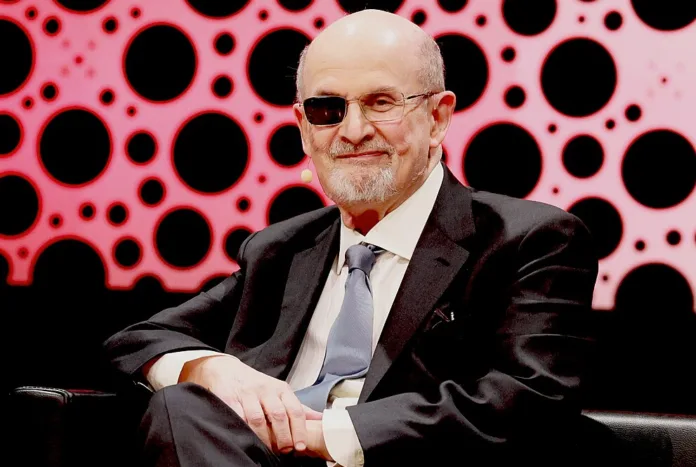In a poignant interview, Salman Rushdie speaks on censorship’s impact from all political spectrums and his recent book, Knife
Salman Rushdie, in his first major television interview since surviving a stabbing attack in 2022, addressed the current state of censorship in America with 60 Minutes’ Anderson Cooper. The renowned author, who has faced death threats for decades, expressed concerns about censorship emerging from both political left and right factions.
During the interview, Rushdie highlighted a troubling trend among younger generations who, he observed, increasingly view censorship as beneficial. He pointed out that while conservative groups have historically sought to suppress books discussing racial history, progressive circles are now similarly advocating for speech restrictions to protect vulnerable communities.
Rushdie’s insights come as he prepares to release “Knife,” a new book that delves into his near-fatal experience and reflects his broader concerns about free speech. The author argued that the suppression of speech could unintentionally harm the very groups it aims to protect, leading to broader societal censorship.
The discussion also revisited the infamous 1989 fatwa issued against him by Iran’s Ayatollah Khomeini following the publication of “The Satanic Verses.” Despite the Iranian government later distancing itself from the decree, Rushdie continued to face significant threats, culminating in the 2022 attack at a New York literary festival.
Rushdie criticized the burgeoning “offence industry” tied to identity politics, suggesting that people often conflate personal affronts with broader cultural attacks. He advocated for a more robust dialogue where challenging ideas are engaged rather than shut down, stating that shutting a book can cease its capacity to offend.
Reflecting on his life and career, Rushdie expressed a poignant wish to be remembered more for his literary contributions than the violent attempts on his life. His passion for storytelling and the imaginative worlds he creates remain undimmed despite the personal challenges and controversies he has faced.
As the literary world anticipates the release of “Knife,” Rushdie’s narrative and his advocacy for unrestricted expression continue to resonate, underscoring the ongoing debate around freedom of speech in today’s politically charged environment.
